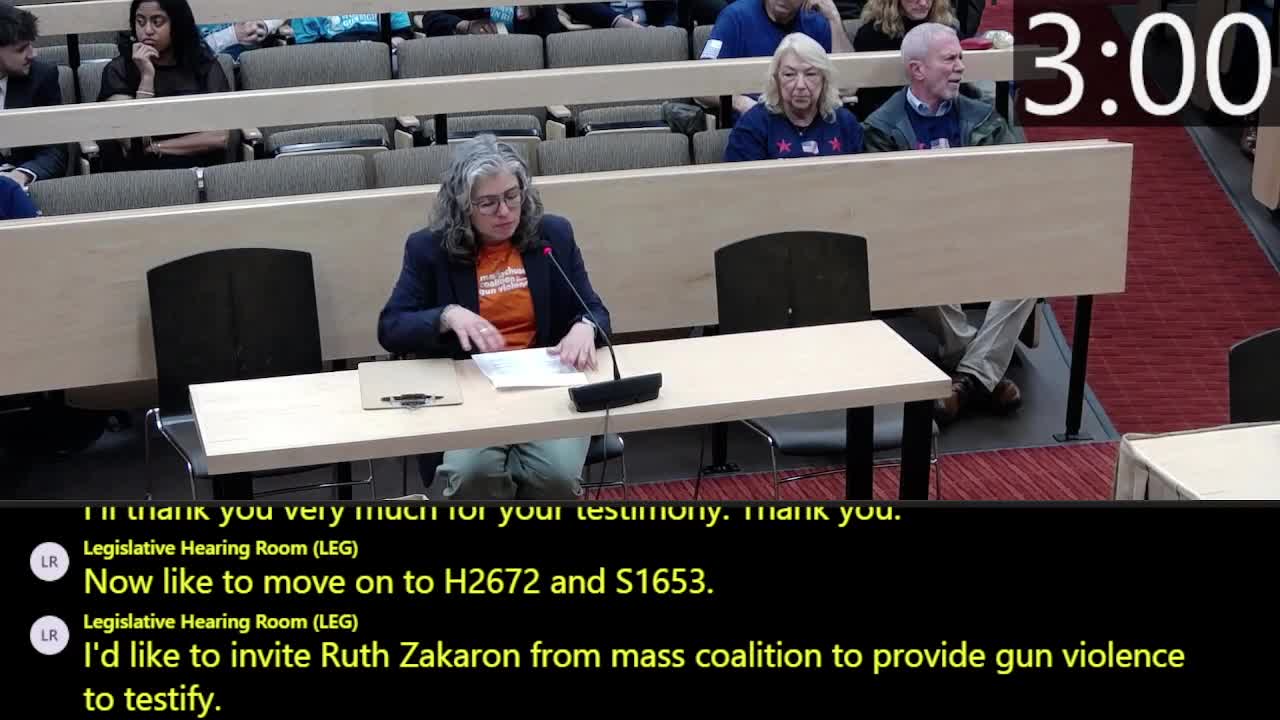Supporters tell committee Massachusetts should let victims sue gun‑industry actors; opponents warn of overreach
Get AI-powered insights, summaries, and transcripts
Subscribe
Summary
Supporters urged the Joint Committee on Public Safety and Homeland Security to report favorably on H.2672 / S.1653, saying the bill would create enforceable industry standards and allow civil liability when dealers or manufacturers knowingly enable unlawful distribution.
Supporters of H.2672 / S.1653 told the Joint Committee on Public Safety and Homeland Security that Massachusetts should adopt a narrowly drawn accountability law to allow civil suits against firearm industry actors that knowingly engage in unlawful or unreasonable practices.
"The firearm industry is the only industry with broad protection from being held liable for the harm its products cause," Ruth Zakarin, CEO of the Massachusetts Coalition to Prevent Gun Violence, told the committee. She said the bill would create a code of conduct for manufacturers and dealers and give survivors a path to civil relief.
Elizabeth Ryan, policy counsel at Everytown for Gun Safety, described how the bill would fit within exceptions to the federal Protection of Lawful Commerce in Arms Act (PLCAA) and pointed to nine other states that have enacted similar statutes. "Massachusetts has the chance to tell the firearms industry that it cannot and will not skirt liability for its own unsafe business practices," Ryan said.
Legal advocates said the bill would not impose strict liability for lawful sales but would let plaintiffs and the attorney general pursue cases when industry actors violate state standards or knowingly enable diversion into the illegal market. "It is time for Massachusetts law to do the same," David Pacino of the Giffords Law Center told the committee, citing recent federal appellate decisions that upheld similar state measures elsewhere.
Opponents from the firearms retail and dealer community warned that most dealers are responsible and that crime guns are often stolen or diverted years after a lawful sale. "If we violate the law ... we're still liable for that," said a dealer who testified; other dealers described extensive federal audits and recordkeeping. Industry opponents urged targeted enforcement of dealers who break the law rather than a broad civil‑liability regime.
Committee members asked questions about the proposal's mechanics, examples of conduct that would be actionable, and whether there are Massachusetts cases that might have proceeded differently under the proposed law. Supporters pointed to multi‑state precedent (California, Connecticut, New York, New Jersey, Illinois, Maryland, Washington, Colorado, Hawaii) and to research showing a small share of dealers account for a large share of traced crime guns. The committee did not vote on the bill at the hearing.
